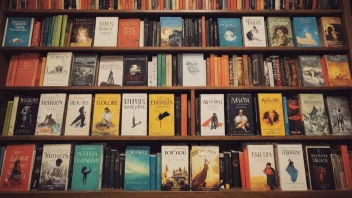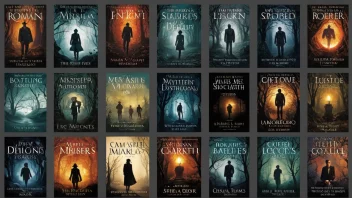Young Adult (YA) literature captivates readers with its exploration of complex themes, particularly the significance of choice and consequence. This genre often portrays characters navigating the tumultuous transition from adolescence to adulthood, where every decision can lead to profound outcomes. As these young protagonists confront dilemmas, they reflect the real-world experiences of their readers, making the narrative both relatable and impactful. In this article, we will delve into five key aspects of how choice and consequence shape the stories in YA literature, illustrating the importance of these themes in the development of characters and plots.
1. Defining Identity Through Choices
In many YA novels, characters are faced with decisions that significantly influence their sense of self. The choices they make often reflect their values, beliefs, and aspirations. For example, in The Hate U Give by Angie Thomas, Starr Carter's decision to speak out against police violence after witnessing her friend’s death is not just a choice to act; it is a declaration of her identity as a Black young woman in America. The consequences of her choice not only affect her but also resonate throughout her community, highlighting how individual choices contribute to broader societal narratives.
2. Consequences as a Catalyst for Growth
The consequences of characters' choices often serve as a powerful catalyst for personal growth. In novels like Thirteen Reasons Why by Jay Asher, the protagonist Clay Jensen grapples with the aftermath of his choices and their impact on Hannah Baker's life. The weight of his decisions forces him to confront difficult truths about friendship, responsibility, and the ripple effect of one's actions. Through the exploration of these consequences, readers are encouraged to reflect on their own choices and their potential impacts on others.
3. Moral Dilemmas and Ethical Questions
YA literature frequently presents characters with moral dilemmas that challenge their ethical beliefs. These situations compel readers to engage with complex questions about right and wrong. For instance, in Divergent by Veronica Roth, Tris Prior must choose between loyalty to her faction and her own identity. The consequences of her choice lead to a thrilling exploration of themes such as sacrifice and bravery. By placing characters in morally ambiguous situations, YA authors invite readers to ponder the nuances of their own ethical decisions.
4. The Role of Peer Influence
Choices in YA literature are often influenced by peer pressure, showcasing the powerful role that friends and social circles play in decision-making. In books like Looking for Alaska by John Green, characters navigate the complexities of friendship and the influence of their peers on their choices. The consequences of these choices can lead to pivotal moments in the narrative, emphasizing the importance of self-discovery and independence. This portrayal resonates with young readers who may find themselves in similar situations, reinforcing the idea that personal choice is often intertwined with social dynamics.
5. Escapism and Consequence in Fantasy Worlds
Fantasy YA novels also explore the themes of choice and consequence, often in imaginative worlds. In A Court of Thorns and Roses by Sarah J. Maas, Feyre's choices in a magical realm lead to dire consequences that affect not only her fate but also the fate of entire kingdoms. These stories allow readers to escape into fantastical realms while grappling with the fundamental truth that choices have consequences, no matter the setting. The stakes may be higher in fantasy, but the underlying message remains relevant, emphasizing the importance of accountability and moral responsibility.
In conclusion, the significance of choice and consequence in Young Adult literature cannot be overstated. Through defining identity, serving as catalysts for growth, presenting moral dilemmas, highlighting peer influence, and exploring these themes within fantastical settings, YA authors create rich narratives that resonate with readers. By engaging with these themes, young readers not only enjoy compelling stories but also gain valuable insights into their own lives and the choices they face.






